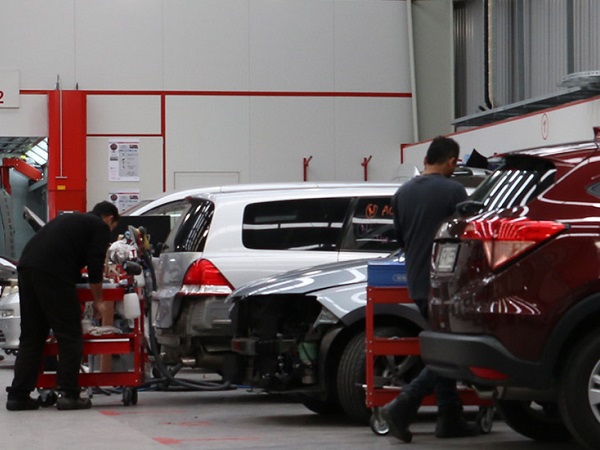Severe weather: For urgent assistance call 0800 800 134.
Submit your claim online here. General FAQ's at Wild Weather Hub.
Vero Voice Blog
Your excess explained
By Jane Brewer
Executive General Manager, Consumer
14 March 2018
Most people know that insurance policies include an excess. But if you’ve never made a claim you might not really know what an excess is for, or how they work.
Even if you’ve read your policy information thoroughly or have made claims before, there are a few things about insurance excesses that you may not know.
1. What is an excess, and why do you have one?
Under your insurance policy, an excess is the amount of money you need to pay first toward any loss. Your insurer then ‘tops up’ your contribution, up to your policy limit.
Excesses are designed to help keep insurance affordable, by ensuring that people aren’t claiming for things they could cover themselves. They also act as an incentive to ensure you take responsibility for the safety and security of yourself and your possessions.
2. Sometimes your excess might be reimbursed
If someone else has caused your loss, we might be able to recover the cost of the claim from them or their insurer. If that happens, we recover the total value of the loss, including your excess, so we’ll reimburse the excess you paid.
Recovery and repayment of your excess depends on a few things, including whether you can identify the other party, whether they admit fault, whether there are witnesses, and whether they have insurance or the ability to pay, so it doesn’t always happen.
3. But if you don't get reimbursed, that doesn't mean you're being blamed
The most common claims where we can recover the costs are vehicle accidents, because it’s usually easy to identify the other driver and they often have insurance. If we know who the other driver is and they’ve admitted fault, we can sometimes just waive your excess up front, because we know we’ll recover it.
Many customers are now used to the idea that if they’re in a car accident and not at fault, they won’t have to pay an excess - and it can feel like you’re being blamed when you’re asked to pay it.
But it’s important to remember that an excess is part of your policy. If your house is robbed or burns down, you need to pay the excess for your house and contents claim, and the same is true if you’re in a car accident.
The key factor in whether you can get your excess reimbursed or waived is not who is at fault – it’s whether we can recover the money from the other party.
4. Excesses can vary on the same policy
Insurance policies include a ‘standard’ excess, which you can sometimes adjust up or down to get more cover or to keep your premiums down. But many policies will also include additional excesses for things that are riskier, and excesses are usually cumulative.
For example, you might have a car insurance policy with a $500 excess, and an additional $750 excess for under 25s - so if a driver under 25 crashed your car the total excess would be $1250.
Young drivers, rented houses, and natural disasters are all common areas where you may have an additional excess, but it’s a good idea to check your policy so you know about any excesses you might need to cover.
5. Excesses are usually based on events, not claims or policies
Insurance excesses are based on the ‘insured event’ – in other words, the theft or damage that occurred to your property.
For most people, an ‘event’ will correspond to a ‘claim’. For example, if your house is robbed and you make a claim for stolen contents, you’ll pay your excess. If it’s robbed again and you make another claim, you’ll pay another excess as this would be a separate event.
On the other side of this coin, if your house is damaged by a fire you might make a claim against two policies – your home and your contents. Because this is only one ‘event’, if both policies are with the same insurance company you may only need to pay one excess.
Need to make a claim?
If you need to make a claim, you can contact your insurance broker or adviser or call us directly. If you have a car insurance policy with Vero, you can also claim online.
The information in this article has been compiled from various sources and is intended to be factual information only. Full details of policy terms and conditions are available from Vero Insurance New Zealand Limited or your financial adviser. For advice on product suitability, please contact your financial adviser. While we take reasonable steps to ensure that the information contained in this article is accurate and up-to-date, it is subject to change without notice. Vero Insurance New Zealand and its related companies does/do not accept any responsibility or liability in connection with your use of or reliance on this article.



